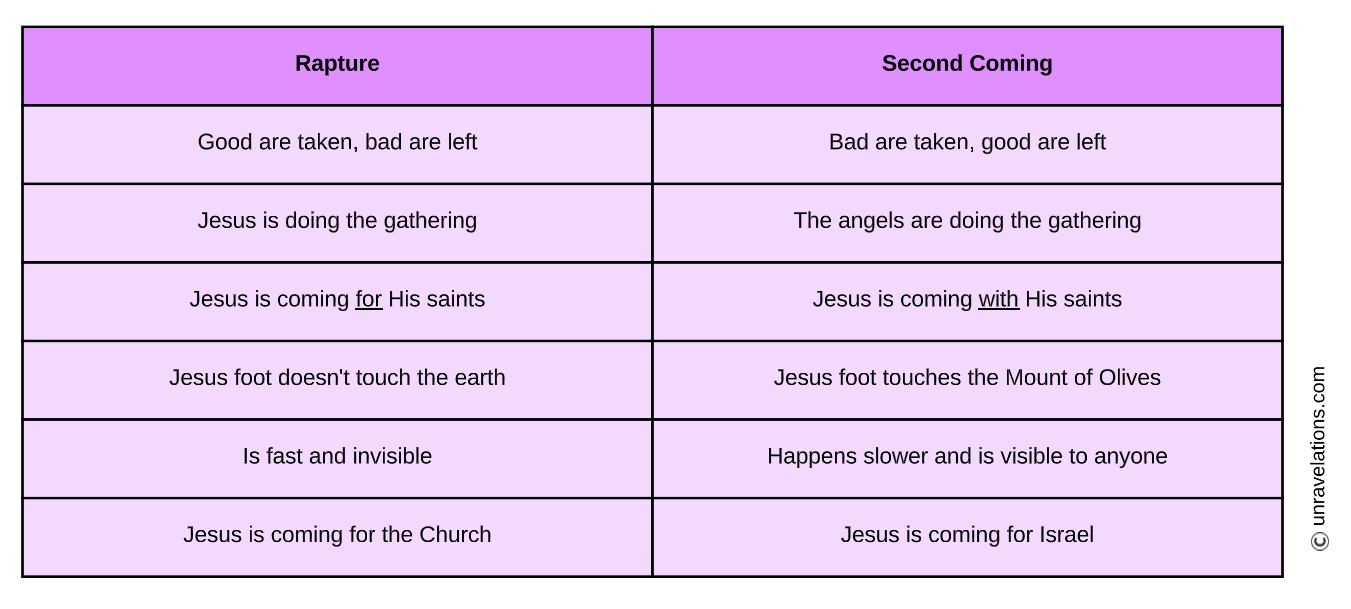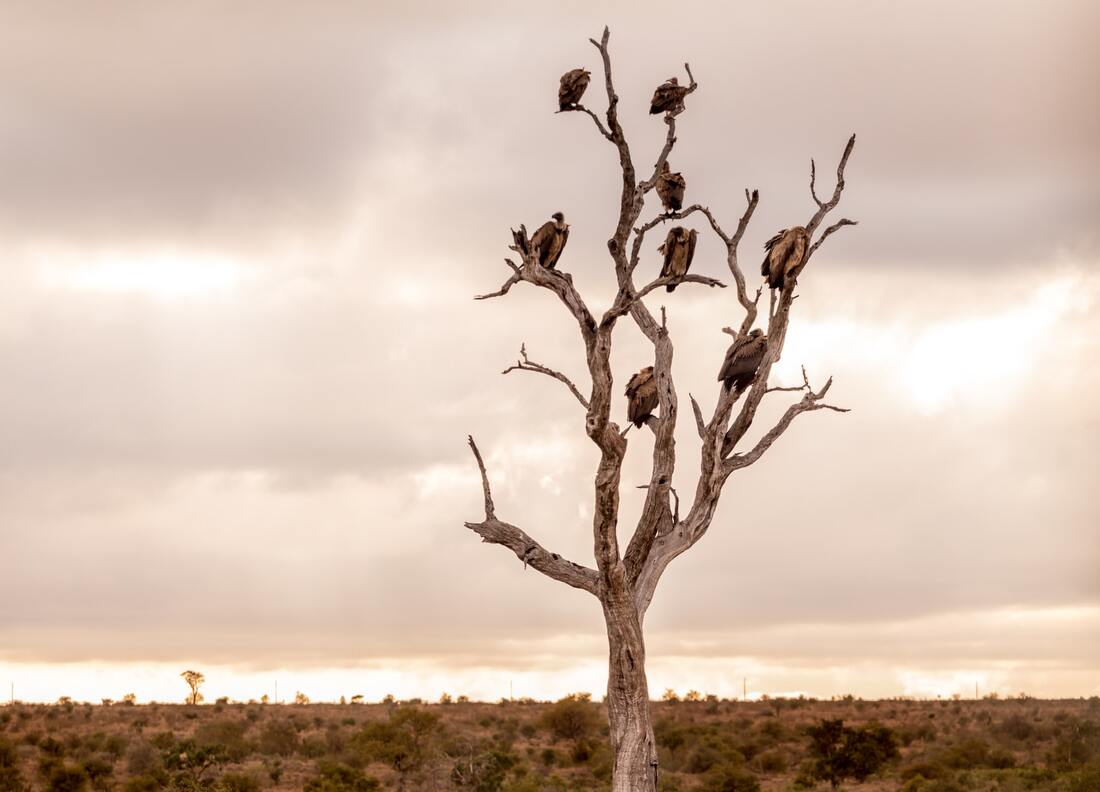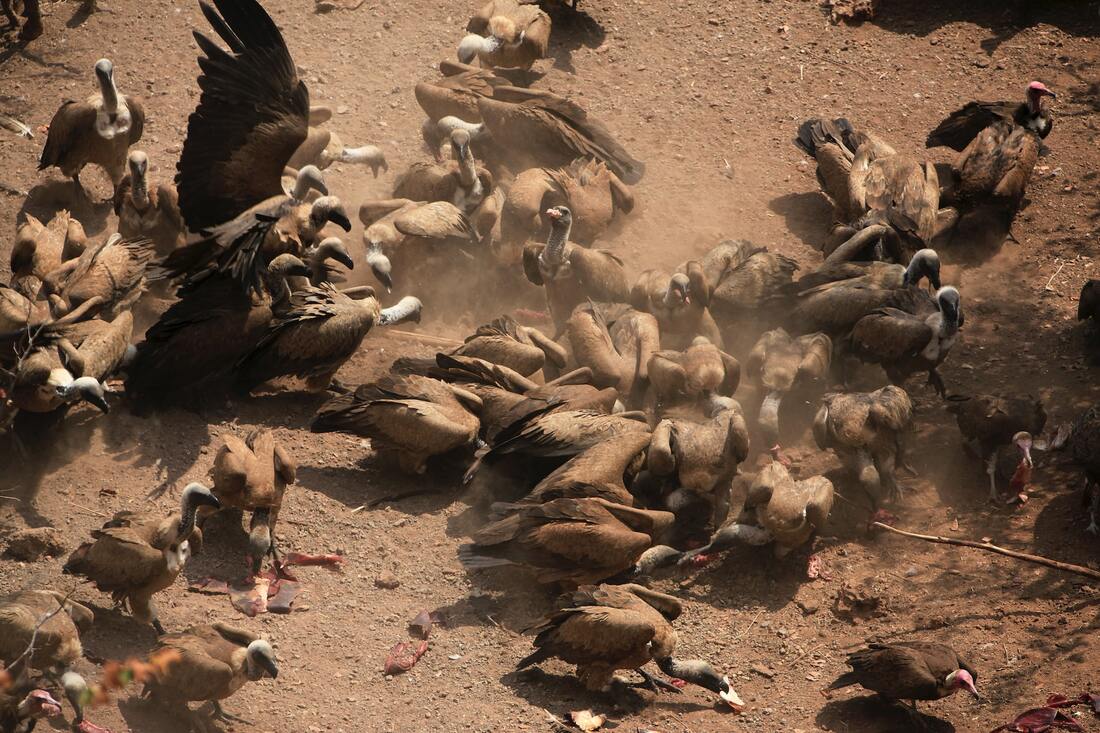"And they answered and said unto him, Where, Lord? And he said unto them, Wheresoever the body is, thither will the eagles be gathered together." (Luke 17:37, KJV) Matthew First of, let's give Annette some credit where credit is due. She did good by pointing out how a lot of pretribbers do not have consistency in their theology, as far as Matthew 24 and parallel passages go. I myself also believed the pretribulational rapture was found in Matthew 24 for a long time, until pretrib-expert dr. Andy Woods showed me the passage in a better context. This however did not lead me away from my pretribulational beliefs, but rather made my conviction stronger. Let me explain, and start at the beginning. Bell pointed out how the ones taken in Matthew 24:39 are likened to the ones taken at the flood. So, in essence, the bad ones are taken. Not the good ones. You don't want to be in this rapture. This is exactly Woods' point, and yet he believes the pretrib rapture is a fact. How does that work? It has to do with context. Bell is partially right. The point however, is that she missed a few big data points. Let's look at the greater context, and then dive further into the text about the carcasses and vultures. Israel Dr. Andy Woods in his sermon series on Matthew 24 and 25 argues that the entirety of the Olivet Discourse is given to a Jewish audience. The church was still a mystery, and while Jesus did already start to reveal some truths about the rapture in for example John 14, this is not the pool we want to throw our fishing line into as the remainder of church truths would be revealed later, about the time when Paul kicked of his ministry to the gentiles. Notice how Jewish Matthew 24 is; it is talking about the temple (verse 1), about Judea (verse 16) and the sabbath (verse 20). As we discussed last time, the verse on the angels gathering the elect from the four corners of the earth (verse 31) is a specific fullfillment of a prophecy in Isaiah 11:11-12. This is talking about God gathering His special nation Israel to prepare them for entrance into the Millennial Kingdom in their mortal bodies (ref: Matth. 25:31-46). Israel has always been Gods elect. Their rejection of Christ meant that we too could inherit salvation, as Paul explains in Romans 11 and Ephesians 2. The elect as being the church in Matthew 24 has to be read into the text. It is not what the original context conveyed, as the primary public was Jewish and inquired about their destiny. As we discovered last time, their rejection means that Jesus will come to visit them once again, but this time they will get it right. It does however involve a lot of tribulation to bring them to their knees. It's called the time of Jacob's trouble for a reason. "Ask ye now, and see whether a man doth travail with child? wherefore do I see every man with his hands on his loins, as a woman in travail, and all faces are turned into paleness? Alas! for that day is great, so that none is like it: it is even the time of Jacob's trouble; but he shall be saved out of it." (Jeremiah 30:6-7, KJV)
Rapture So, we just learned that there is no rapture or resurrection to be found in Matthew 24. There is also no mention of the church, only references to the nation of the Jews. In the First Epistle to the Thessalonians, however, we see all three. So, what else is different? Bell compares Matthew 24 to Revelation 19, so lets take that passage into consideration in this equation, too. In doing so, the following may seem like minor points to you, but when you add them all up, an entirely different picture emerges. In Matthew 24, the bad ones are taken out (as in the flood, ref. verse 39), and the righteous remain. In 1 Thess. 4 and 5, the righteous are taken, and the rest is left for sudden destruction (5:3). In Matthew 24, the angels do the gathering. In 1 Thessalonians 4, Jesus Himself does the gathering. In 1 Thessalonians 4, Jesus comes for His saints. In Revelation 19, Jesus comes with His saints. In 1 Corinthians 15 (you know, the other rapture verse), the rapture happens in the twinkling of an eye, in Matthew 24 every eye will see Him. Do you look to the sky all day long? I could go on and on. I made a short list below, for you to consider.
" 27. For as the lightning cometh out of the east, and shineth even unto the west; so shall also the coming of the Son of man be. 28. For wheresoever the carcase is, there will the eagles be gathered together. 29. Immediately after the tribulation of those days shall the sun be darkened, and the moon shall not give her light, and the stars shall fall from heaven, and the powers of the heavens shall be shaken: 30. And then shall appear the sign of the Son of man in heaven: and then shall all the tribes of the earth mourn, and they shall see the Son of man coming in the clouds of heaven with power and great glory. 31. And he shall send his angels with a great sound of a trumpet, and they shall gather together his elect from the four winds, from one end of heaven to the other." (Matthew 24:27-31, KJV) Order When we follow the chronology in the text, it becomes painfully clear that the sign of the Son of man happens after the gathering of the vultures (or eagles). In fact, it shows a great correlation with Revelation 6 and in Revelation 19, we see this actually reversed. The Son of Man is coming on the clouds in verse 11-16, and the carcasses and vultures appear later, after He has overcome the kings of the earth (17-21). What's going on here? As I have tried to argue before, Jesus Second Coming could be described as being a single event as much as a period of time. It depends on the context. Just as His First Coming, the context has to provide details to help us decipher what the best explanation is. Let's explore some examples below. Taken In those two short sentences, two events are described, both referencing Jesus' First Coming, yet with over 30 years between them. Do you see what I'm getting at? Prophecy isn't always that simple to understand. There are subtilities in the text sometimes that we need to be sensitive to. Now let's get back to Luke 17 and Matthew 24, and make a few observations in the verses Annette is pointing us to. First, being taken is not the same as having your dead body being eaten by vultures. You don't get "taken" by a vulture or an eagle suddenly why grinding the mill or working on the field. Secondly, notice the serenity in the scene of Luke 17 and the absolute mayhem that emerges in Revelation 6 and onwards. Where can we fit this so called "taking" of Luke 17 in Revelation? Let me state it this way: I think we are asking the wrong questions. The question is not so much that those are "taken", but rather "overtaken". That is the context of the great deluge. They weren't only taken by the flood in a literal sense, but note how Jesus points us to the suddenness and unpredictibility of this judgment. They were absolutely unprepared! Therefore, what we see in Luke 17 best fits between 1 Thessalonians 4 and 5, or between Revelation 5 and 6. Left Then the only question that remains is; who are the ones left? Well, while the sudden destruction started to overtake the world by surprise as they thought there was peace and safety, this too is describing a series of events that starts to unfold and is therefore a description of a longer period. Not a single event. When you read in Matthew 24, the order is clear; first, we see the vultures picking the dead bodies. Second, Matthew tells us that "after the tribulation" the sun and moon will be darkened. And finally, we see the Sign of the Son of Man. This places the appearing of these vultures in the tribulation, not necessarily after it. That doesn't mean there won't be birds after the tribulation to get hold of the rest of the dead bodies. It could simply be two descriptions of two events. One event in Matthew 24 and one event in Revelation 19. Birds pick carcasses all the time, whenever they get the chance. It's not that we are watching a rare event here. We see birds in Revelation 19, but perhaps there will be birds in Revelation 6 too, after the fourth horseman of the apocalypse came to wreak havoc. The ones left are the ones who may have had a sense this was coming, or were better prepared. And for that purpose, it's best that we finally take a look at the parable of the 10 virgins. Five were "taken' by surprise, but five were not. And yet, they all slept. All 10 of them. " 1. Then shall the kingdom of heaven be likened unto ten virgins, which took their lamps, and went forth to meet the bridegroom. 2. And five of them were wise, and five were foolish. 3. They that were foolish took their lamps, and took no oil with them: 4. But the wise took oil in their vessels with their lamps. 5. While the bridegroom tarried, they all slumbered and slept. 6. And at midnight there was a cry made, Behold, the bridegroom cometh; go ye out to meet him. 7. Then all those virgins arose, and trimmed their lamps. 8. And the foolish said unto the wise, Give us of your oil; for our lamps are gone out. 9. But the wise answered, saying, Not so; lest there be not enough for us and you: but go ye rather to them that sell, and buy for yourselves. 10. And while they went to buy, the bridegroom came; and they that were ready went in with him to the marriage: and the door was shut. 11. Afterward came also the other virgins, saying, Lord, Lord, open to us. 12. But he answered and said, Verily I say unto you, I know you not. 13. Watch therefore, for ye know neither the day nor the hour wherein the Son of man cometh." (Matthew 25:1-13, KJV)
" 1. And Jesus answered and spake unto them again by parables, and said, 2. The kingdom of heaven is like unto a certain king, which made a marriage for his son, 3. And sent forth his servants to call them that were bidden to the wedding: and they would not come. 4. Again, he sent forth other servants, saying, Tell them which are bidden, Behold, I have prepared my dinner: my oxen and my fatlings are killed, and all things are ready: come unto the marriage. 5. But they made light of it, and went their ways, one to his farm, another to his merchandise: 6. And the remnant took his servants, and entreated them spitefully, and slew them. 7. But when the king heard thereof, he was wroth: and he sent forth his armies, and destroyed those murderers, and burned up their city. 8. Then saith he to his servants, The wedding is ready, but they which were bidden were not worthy. 9. Go ye therefore into the highways, and as many as ye shall find, bid to the marriage. 10. So those servants went out into the highways, and gathered together all as many as they found, both bad and good: and the wedding was furnished with guests." (Matthew 22:1-10, KJV)
" 33. Hear another parable: There was a certain householder, which planted a vineyard, and hedged it round about, and digged a winepress in it, and built a tower, and let it out to husbandmen, and went into a far country: 34. And when the time of the fruit drew near, he sent his servants to the husbandmen, that they might receive the fruits of it. 35. And the husbandmen took his servants, and beat one, and killed another, and stoned another. 36. Again, he sent other servants more than the first: and they did unto them likewise. 37. But last of all he sent unto them his son, saying, They will reverence my son. 38. But when the husbandmen saw the son, they said among themselves, This is the heir; come, let us kill him, and let us seize on his inheritance. 39. And they caught him, and cast him out of the vineyard, and slew him. 40. When the lord therefore of the vineyard cometh, what will he do unto those husbandmen? 41. They say unto him, He will miserably destroy those wicked men, and will let out his vineyard unto other husbandmen, which shall render him the fruits in their seasons. 42. Jesus saith unto them, Did ye never read in the scriptures, The stone which the builders rejected, the same is become the head of the corner: this is the Lord's doing, and it is marvellous in our eyes? 43. Therefore say I unto you, The kingdom of God shall be taken from you, and given to a nation bringing forth the fruits thereof." (Matthew 21:33-43, KJV) Vineyard What does the vineyard refer to? Israel of course, if you have read Isaiah 5. So, who are the servants in Gods vineyard? At that moment, it was the Jewish leadership. When Jesus tells them in verse 43 that they will be replaced by a nation that will bring forth the fruits thereof, He is referring to a future nation of Israel. Remember, this is talking about a real physical, geographical place called Israel. It's not a spiritual reference to the church taking care of stuff for 2000 years. Just as Isaiah's parable about the vineyard was about the physical land of Israel, Jesus was building onto that parable and was referring to that same geographical place. Again, this is not about the church. The church has never been called a nation. It is called the body of Christ, or the bride. This future nation that will bring forth the fruits of this vineyard, is a reference to the millennial kingdom of Israel. Did you notice both parables in Matthew 22 and 25 started with a reference to the "Kingdom of Heaven?" "And in the days of these kings shall the God of heaven set up a kingdom, which shall never be destroyed: and the kingdom shall not be left to other people, it shall break in pieces and consume all these kingdoms, and it shall stand for ever." (Daniel 2:44, KJV) Kingdom of Heaven Actually, the point is not that this is somehow a reference to a more spiritual kingdom because it mentions the word "heaven". The point is that this is an indication of where it originated. It is the kingdom from heaven, coming onto the earth, for the nation of Israel to inherit. Gentiles of course can be partakers, but this doesn't mean it's all spiritual and we are currently already in this kingdom yet. Jesus will inherit the throne of David. That is a reference to a physical throne. He is currently on the throne of His Father, with Him (Rev. 3:21), but will be seated on His own throne in the millennial kingdom. You can actually see this in, yes.. Matthew 25, verse 31. This is a reference to the throne of David, an actual throne that will be in Jerusalem during the millennial kingdom. Don't believe me? Listen to what Gabriel told Mary: Inheritance Anyway, let's get back to our main question. The ones left are not resurrected (yet). They will inherit the physical kingdom in their mortal bodies. They will have children. And these will have children, and grandchildren. And so on. The earth will be filled with life again. Circumstances will be optimal for life, but the main problem still hasn't been dealt with for those mortal people: sin. Why else would people go after Satan when he tries to invade the New Jerusalem in Revelation 20? Where do all these people come from? Well, they survived the tribulation. The world doesn't stop after 6000 years. It continues for 1000 more years! We, the church, will have glorified bodies already, if we consider what Paul writes in 1 Corinthians 15:51-52. But the Israelites who are still alive at the end of the tribulation, will be gathered from all around the world, and set in their homeland. Look at what Isaiah tells they will do: " 11. And it shall come to pass in that day, that the Lord shall set his hand again the second time to recover the remnant of his people, which shall be left, from Assyria, and from Egypt, and from Pathros, and from Cush, and from Elam, and from Shinar, and from Hamath, and from the islands of the sea. 12. And he shall set up an ensign for the nations, and shall assemble the outcasts of Israel, and gather together the dispersed of Judah from the four corners of the earth. 13. The envy also of Ephraim shall depart, and the adversaries of Judah shall be cut off: Ephraim shall not envy Judah, and Judah shall not vex Ephraim. 14. But they shall fly upon the shoulders of the Philistines toward the west; they shall spoil them of the east together: they shall lay their hand upon Edom and Moab; and the children of Ammon shall obey them. 15. And the LORD shall utterly destroy the tongue of the Egyptian sea; and with his mighty wind shall he shake his hand over the river, and shall smite it in the seven streams, and make men go over dryshod. 16. And there shall be an highway for the remnant of his people, which shall be left, from Assyria; like as it was to Israel in the day that he came up out of the land of Egypt." (Isaiah 11:11-16, KJV) Gathering It's very clear from the text that this is not heaven yet. Isaiah is talking about geographical places. Those people will be in physical Israel and as we can conclude from the preceding context, there will be absolute peace during Jesus' 1000 year reign. This is the gathering Matthew is referencing to in chapter 24 verse 31. It's not a reference to the rapture, not is it a reference to the resurrection. So, both superficial pretribbers as posttribbers are wrong here. The real answer is found by carefully exegeting the Bible. How do we overcome the tribulation? It's simple. We are already overcomers through Him. We just have to wait for the rapture to happen, whether we are alive or asleep (: God bless! "Nay, in all these things we are more than conquerors through him that loved us." (Romans 8:37, KJV)
1 Comment
Todd A Parker
2/22/2023 22:24:56
A great job, as expected.
Reply
Leave a Reply. |








 RSS-feed
RSS-feed
